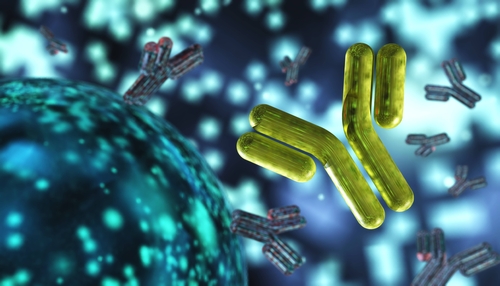PureTech Health is developing two promising candidate therapies that target key immunosuppressive mechanisms in cancer and may be used against cancers that fail to respond to existing immunotherapy approaches.
The antibodies — LYT-200 and LYT-210 — were developed to inhibit the Galectin-9 protein and gamma delta 1 (γδ1) T-cells, respectively, both of which are increased in many solid cancers and help maintain a pro-tumoral environment.
This information was presented recently at the American Association for Cancer Research (AACR) Annual Meeting 2019 in two posters titled, “First in class immunotherapy targeting Galectin-9 promotes T-cell activation and anti-tumor response against pancreatic cancer and other solid tumors,” and “Development and testing of the first in class immunotherapy targeting immuno-suppressive δ1 containing γδ T cells for the treatment of pancreatic ductal adenocarcinoma and other solid tumors.”
“We’re proud to present data on these programs at AACR, one of the premiere scientific meetings focused on cancer research. Galectin-9 and γδ1 T cells represent powerful immunosuppressive mechanisms across both innate and adaptive immunity,” Joseph Bolen, PhD, chief scientific officer at PureTech Health, said in a press release.
Immunotherapies are showing outstanding results as a cancer treatment, but there are still some cancers, like pancreatic and colorectal cancers, that fail to respond well to approved immunotherapies. This is largely because of highly immunosuppressive environments that curb the body’s immune defenses.
That is why finding new ways to improve immune cell function and tumor-killing ability is critical to obtaining better outcomes for these patients.
Galectin-9 is a master suppressor of the immune system that exerts its immunosuppressive role across many cells of the immune system. Because it is produced by both cancer cells and other cells of the microenvironment, and can be released into circulation, the molecule has a body-wide effect on the immune system, suggesting that its inhibition could have multiple anti-tumor effects.
PureTech’s anti-Galectin-9 antibody LYT-200 is being developed for pancreatic cancers, bile duct cancers, and some liver and colorectal cancers. In mouse models of pancreatic cancer, the molecule increased T-cell activation, changed macrophages (cells that engulf pathogens) into an anti-tumor state, and increased the production of inflammatory cytokines (small proteins that regulate the immune system), which ultimately led to a significant reduction in tumor size.
The company now plans to file an investigational new drug application with the U.S. Federal Drug Administration to initiate clinical studies of LYT-200 in 2020.
γδ1 T-cells, meanwhile, are immune cells that block the function of tumor-killing T-cells directly, prevent other immune cells from activating T-cells, and attract more immunosuppressive cells to the tumor environment. This suggests that targeting γδ1 T-cells could have a widespread effect on the immune system, activating innate and acquired mechanisms of immunity.
γδ1 T-cells are produced in excess by cancers of the breast, brain, skin, and pancreas, and PureHealth has been testing several agents that could be used to deplete these cells.
At the meeting, the company presented data from these agents, showing that LYT-210 has a high specificity to γδ1 T-cells, but not to other gamma delta T-cell subsets or other T-cells. Thus, LYT-210 was selected as prime candidate for targeting these cells and ongoing studies are now assessing the effectiveness of γδ1 T-cell inhibitors in combination with immune checkpoint inhibitors.
“We have moved quickly to advance development of compelling candidates that could act as both monotherapies and combination therapies against cancers that currently do not respond well to approved immunotherapies,” Bolen said.


